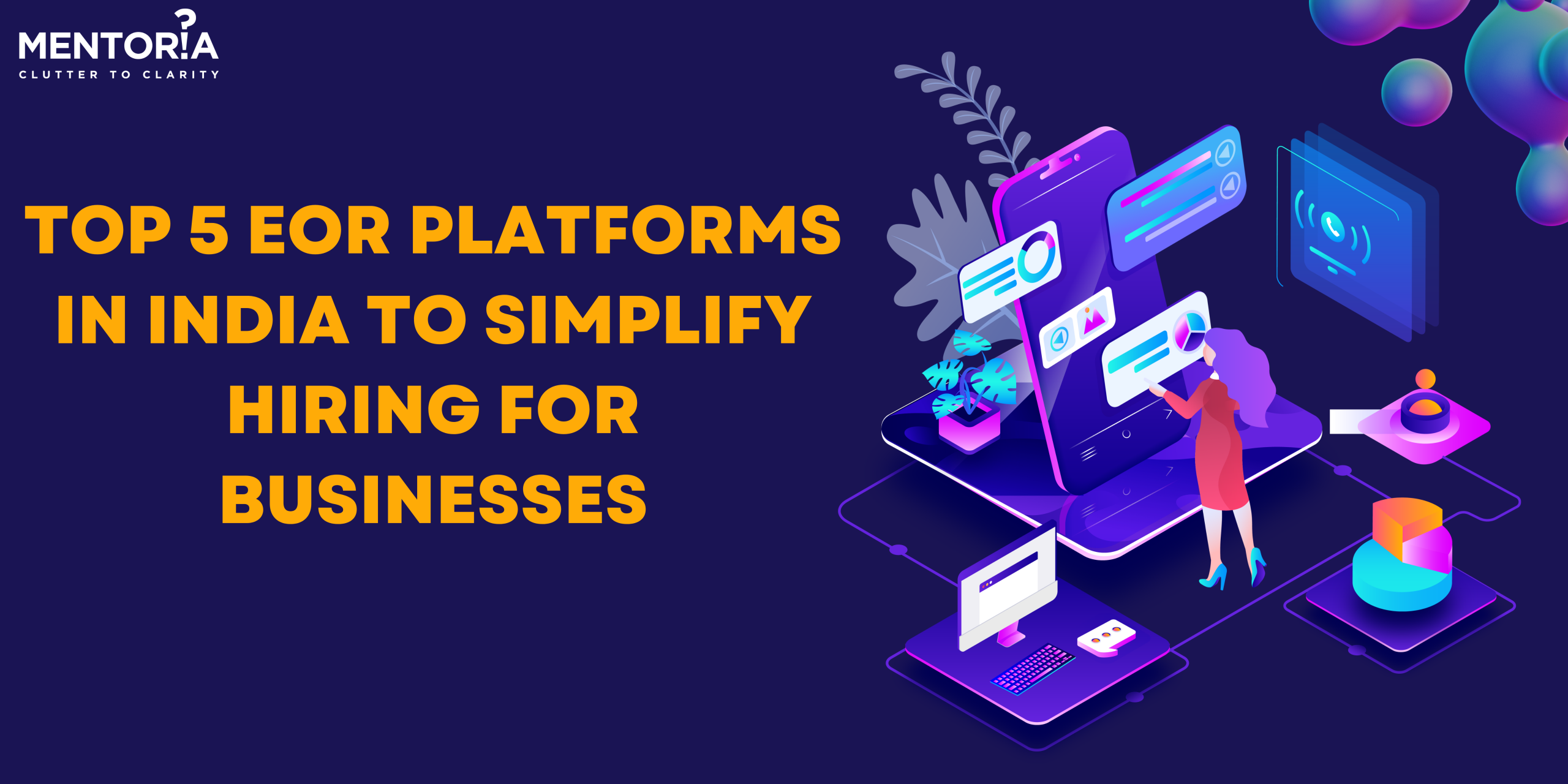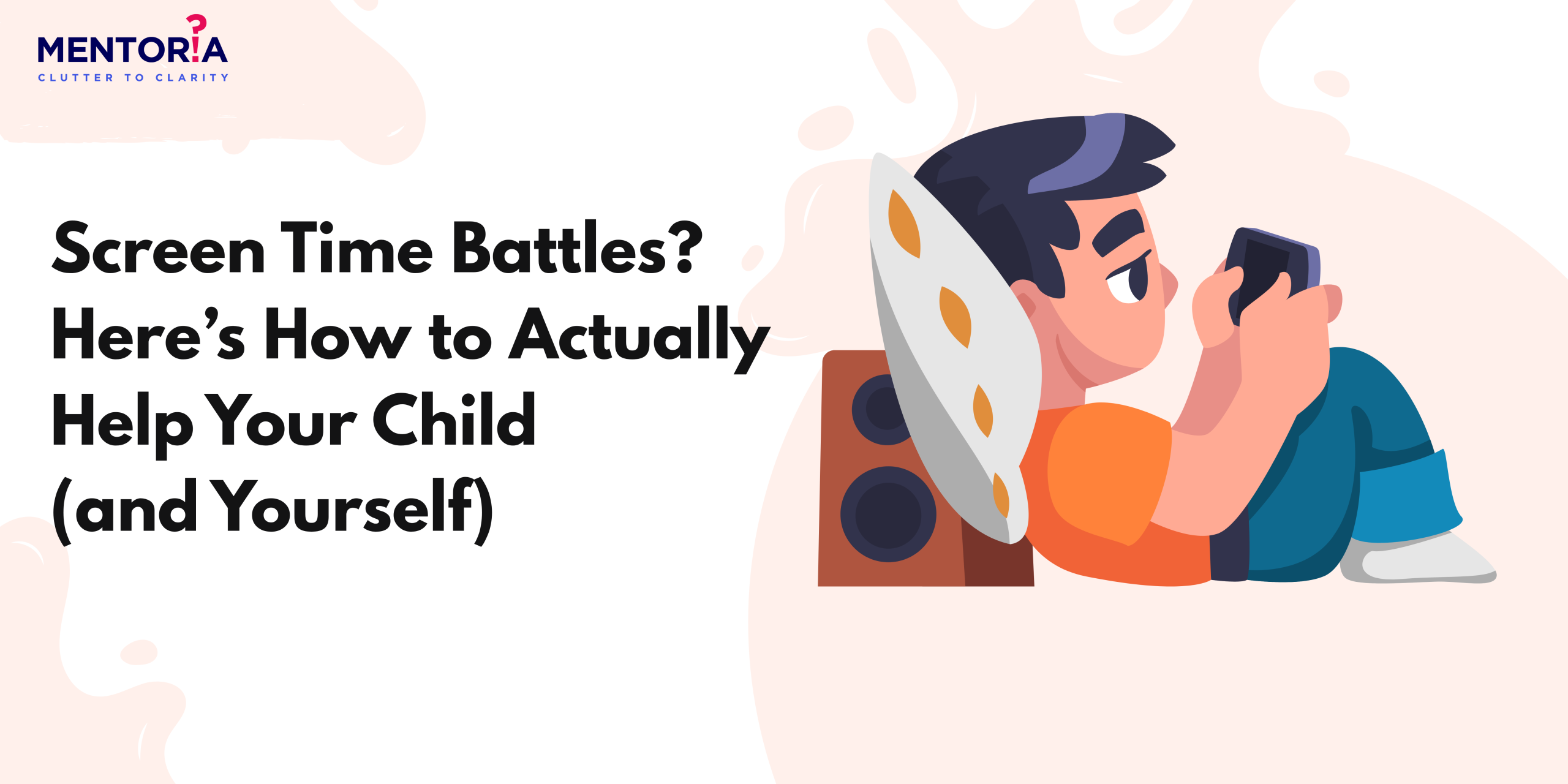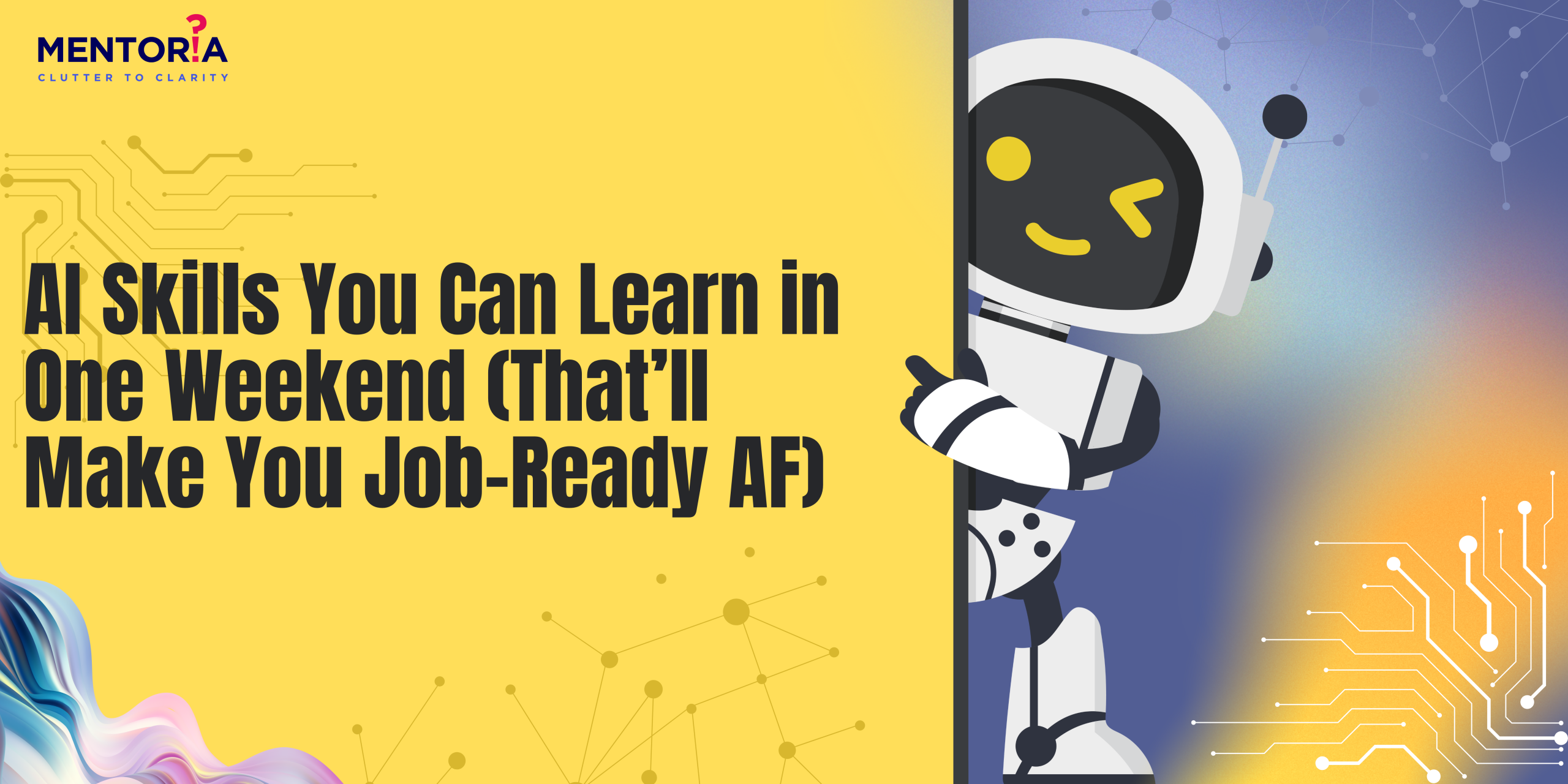What are the Types of Psychological Disorders and Problems?
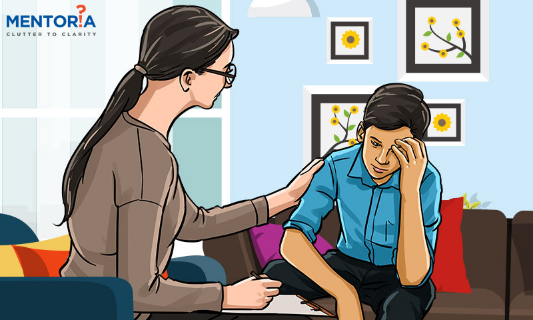
There was a time when mental health was treated like taboo and no one really spoke about the struggles they were going through. However, we live in a very different scenario today, where the world is slowly but gradually opening up to mental health challenges. Celebrities like Deepika Padukone, Randeep Hooda, Ryan Reynolds, Lady Gaga and many other celebrities are opening up about their own mental health.
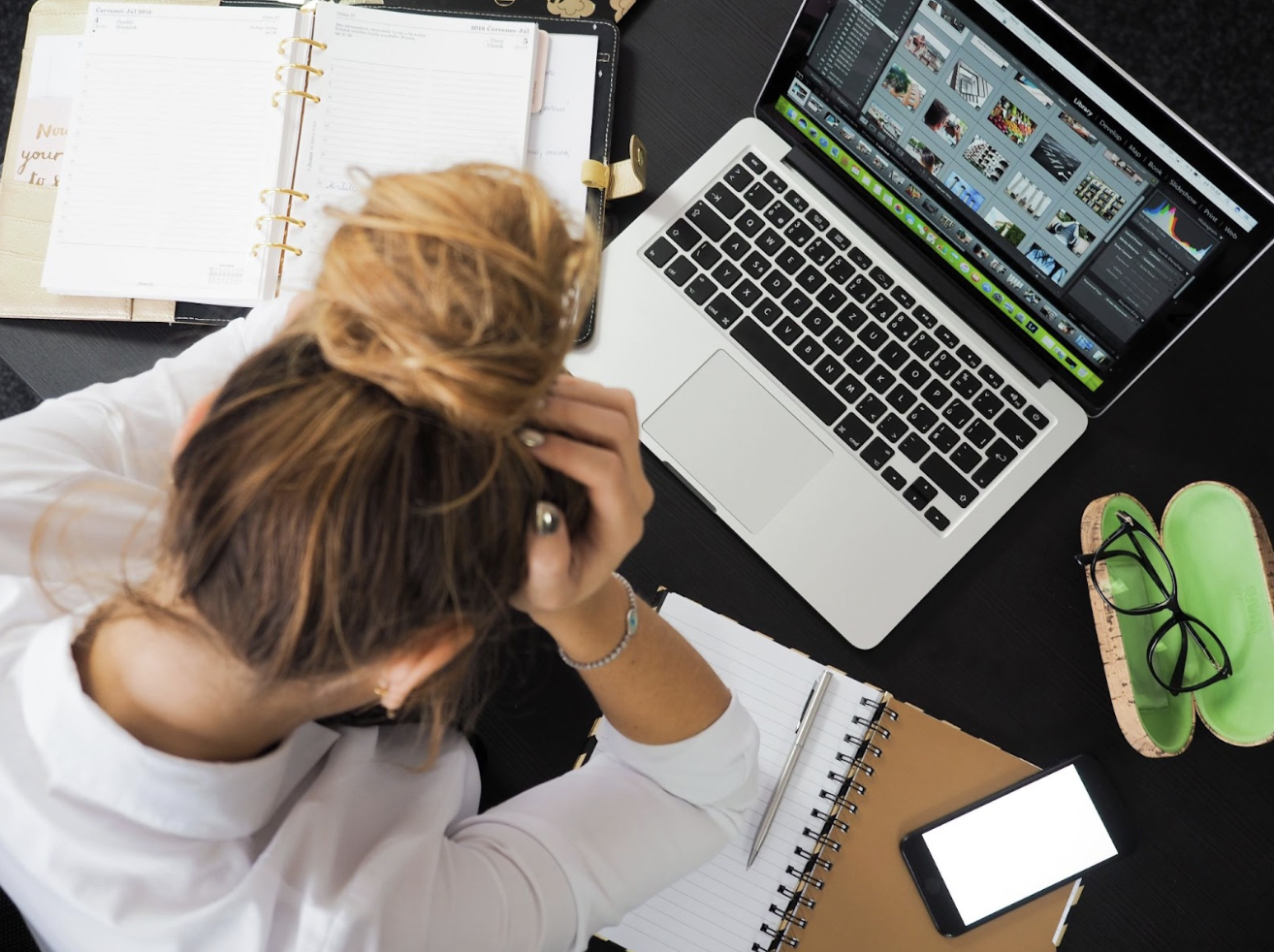
According to the World Health Organisation (WHO), every sixth person in India needs help with their mental health. But it’s not as easy as walking into a doctor’s clinic, because we’re still battling the stigma attached to mental health.
At Mentoria, we keep an open mind, and understand the importance of mental health. That’s why our career counselling sessions are about helping you find the career that works best for you rather than pressuring you to find the most socially acceptable career. Discover your passion with Mentoria.
What are Psychological Disorders?
Broadly, a psychological disorder is anything that causes distress, pain or change in behaviour, or triggers people to react in a negative way. But the definition of a psychological disorder is not set in stone because ‘normal’ varies from person to person.
“A one-off panic or anxiety attack cannot be termed as a psychological disorder. But if it happens repeatedly to the point that it cripples and keeps you from leading your normal life, it should be investigated,” says Prema Balasubrahmanyam, a marriage, family and child psychotherapist.
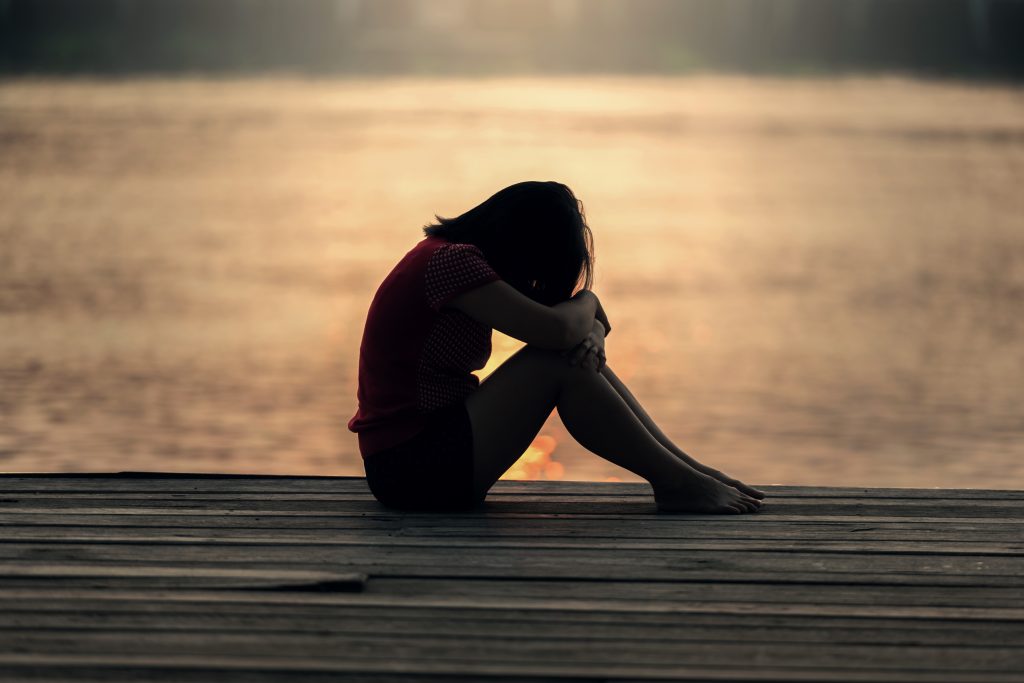
What triggers a Mental Disorder?
A survey launched in 2014 revealed that 95% of Indian millennials admitted to being stressed. While growing stress can work as a trigger, it cannot be the only one. “A disorder can be triggered by a set of factors. Genetic makeup, social setup, environment and experiences can work as a collective trigger,” says Balasubrahmanyam.
A trigger can be a hurdle that causes an instant change in a person’s behaviour. “Imagine a hyperactive child cooped up in a room all day long. It is bound to trigger a reaction that might seem like a disorder,” says Rohit Sasvehalli, a life coach.
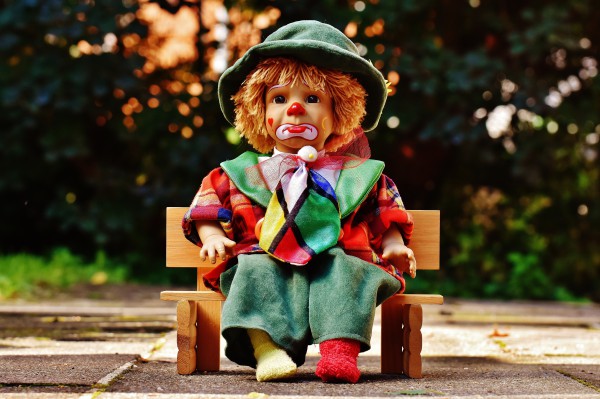
Disorders on the Rise
In India, psychological disorders are one of the primary causes of non-fatal disease burden. As environment and demographics play a role in triggering disorders, psychological disorders on a rise in India vary from that of other countries. Here’s a quick look at the disorders that have been on a rise in our country:
Depression
Sadness is a natural emotion. But a prolonged bout of feeling negative, hopeless and ‘low’ can compromise the way our brain works. This indicates depression. It can occur for a variety of causes and can be triggered by a variety of factors. Depression does not develop fast or abruptly. Instead, it takes time to develop and might result in a “downward spiral.” It’s a serious condition that, if left untreated, can have serious implications. Furthermore, It can also become the trigger for other disorders.
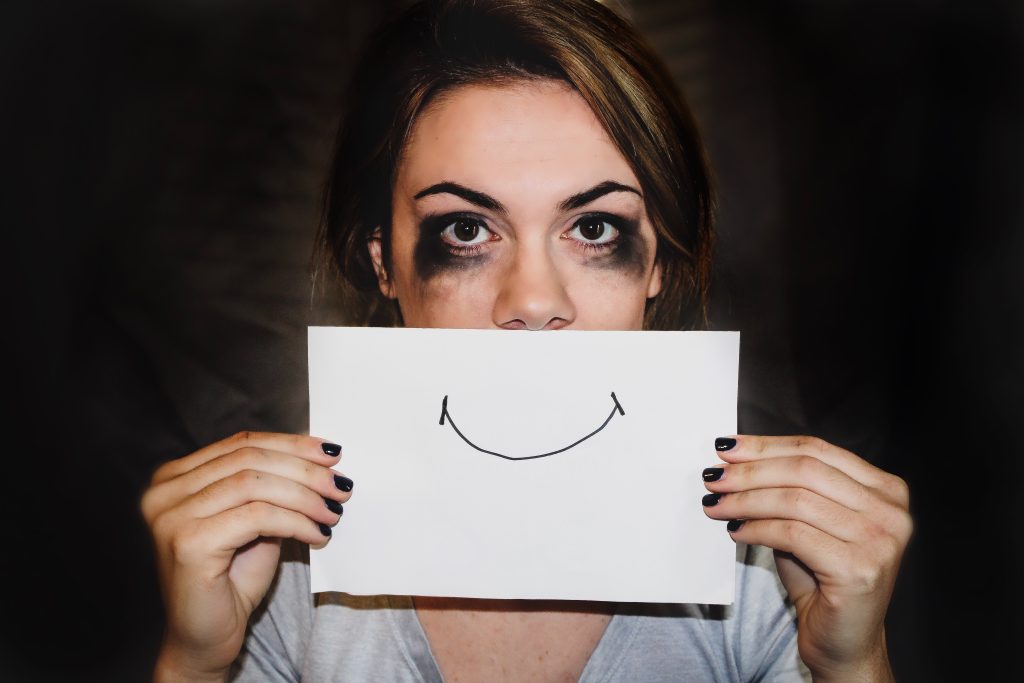
OCD
Having uncontrollable, repetitive thoughts followed by the urge to do something over and over can be slotted as an Obsessive Compulsive Disorder (OCD). While we all obsess about certain things from time to time, it takes on the form of a disorder when it hinders our day-to-day life. Obsessions and/or compulsions that are time-consuming (more than one hour per day), cause significant distress, and hinder job or social functioning, including simple daily activities, are classed as OCD.
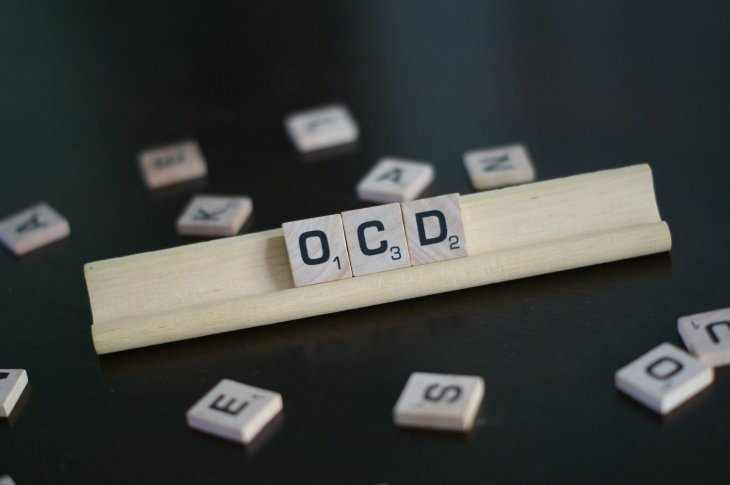
Social Anxiety
Excessive fear of being judged, worry about shame or humiliation, or concern about offending someone are all examples of social anxiety.The fear of not putting your best foot forward in a social scenario keeps many young adults for moving forward at all. “In the age bracket of 18-34 years, I see many who are anxious about how they will be perceived in social circles. They are nervous and often refuse to step forward and interact with others in a social setting. This leads to absenteeism in class and alienating themselves from their peers,” says Balasubrahmanyam. Social media has a crucial role to play here. “Social media is one of the reasons for perceived acceptance in peer groups,” points out Balasubrahmanyam.
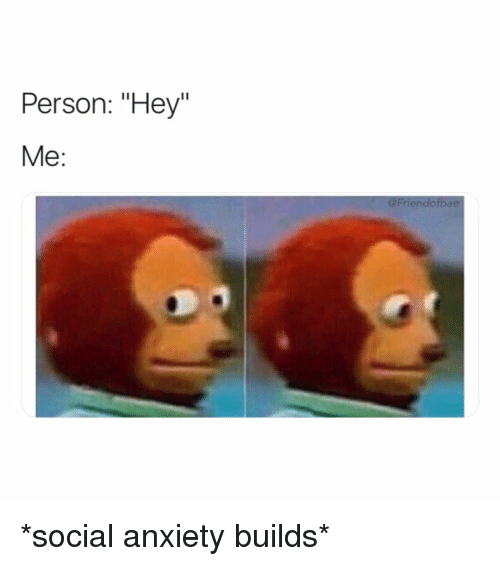
At Mentoria, acceptance is our mantra, and we understand how nerve-wracking appointments can be. That’s why our expert career counsellors are trained to be open and accepting while providing personalized, step-by-step guidance throughout your career journey. Get in touch with us today.
Media Addiction
The ease with which we can get lost in the virtual world has resulted in an increase in addiction, especially to media. Be it social media, television, movies or games, people today spend way more time glued to their screens than they do in the real world. Media addiction is a type of behavioural addiction characterised by excessive concern about social media, an irrepressible desire to use screens, and investing so much time and effort to digital media that it interferes with the important aspects of one’s life.This leads to alienation and can cause confusion, sleep disorders and depression. Balasubrahmanyam sets two hours as an upper limit for consuming all media.

The Way Forward
“Depression may not be a negative thing. I have met many people who conquered their depression and emerged victorious. Depression is your body and mind’s way of saying something is off-track. You have to face it head-on in order to defeat it,” says Sasvehalli.
India is slowly opening up and being creative and sensitive towards mental health. While insurance companies are including it in their plans, English teacher Dr R Purnima is sensitising students through literature and plays. Hospitals have started offering therapy for de-addiction from media.
A Word of Caution
With so much information about mental disorders available online, self-diagnosis among individuals is on a rise. “As a counsellor, be thorough while taking the client’s history. It helps in separating real symptoms from the perceived ones,” says Balasubrahmanyam. A counsellor is very likely to come across a client who has already accepted that they are undergoing depression or another disorder based on an online check or test. It is up to you to get to the root of the problem and validate or correct their diagnosis. Remember that science is still evolving in the mental health space and not every case will have a similar pattern. A great thumb rule as a counsellor is to have an open mind and stay updated.
We at Mentoria understand the importance of easing the mind. When career confusion has you down, Mentoria can help you find clarity. Our 4-step career guidance solution, helps us find the right career fit for you from 3 streams, 850+ courses & 12,000+ careers.



